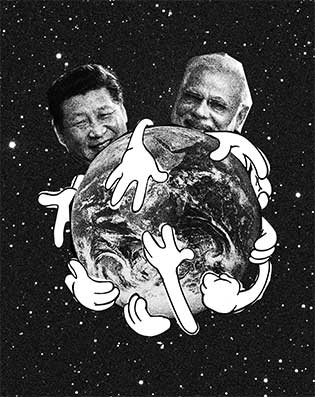Rise of the False Reformers
< < Go Back
Over the past year leadership changes in many of the world’s biggest emerging markets, such as China, India, Indonesia, and Thailand, have created hopes of dramatic economic liberalization among citizens of those countries and foreign investors. Media reports cast the new men in charge of the two most populous countries—Indian Prime Minister Narendra Modi and Chinese President Xi Jinping—as once-in-a-generation reformers who could streamline their lumbering economies by slashing state enterprises and reducing waste.
These hopes are likely to be dashed. Modi, Xi, and every other supposedly visionary new leader across the developing world won’t dislodge state capitalism or seriously liberalize their economies. Instead, Leviathan will stay in control of the economy, eventually depressing growth and undermining the entire world’s chance to boom.
Although emerging markets have posted impressive growth rates over the past decade, weathering the global slowdown of the late 2000s better than most developed nations, high-growth nations such as Brazil, China, India, Indonesia, and Thailand have rarely adhered to a strict free-market script. They all maintain extensive state control of many parts of their economies. In China, state-owned enterprises (SOEs) make up almost all of the 20 biggest companies by valuation; in Brazil, India, Indonesia, and Thailand, the government still controls or has vast influence over many of the largest companies.
In the past decade state companies in many of these nations have become more entrenched and have learned how to lobby powerful officials—a relatively new phenomenon in places like China or Indonesia.
Still, the recent and deep economic slumps in Europe, Japan, and the U.S. haven’t impressed the developing world, leaving many people there skeptical of market-oriented reforms and economic liberalization.
In India, the appeal of state intervention and worry about Western-style economics also remain significant, despite Modi’s free-market-oriented success running Gujarat state.
The staying power of state capitalism should be a source of concern for Western policymakers. Economic liberalization in the giant emerging markets matters not only for Indians and Chinese and Brazilians but also for the entire world.
More From Bloomberg Businessweek:




